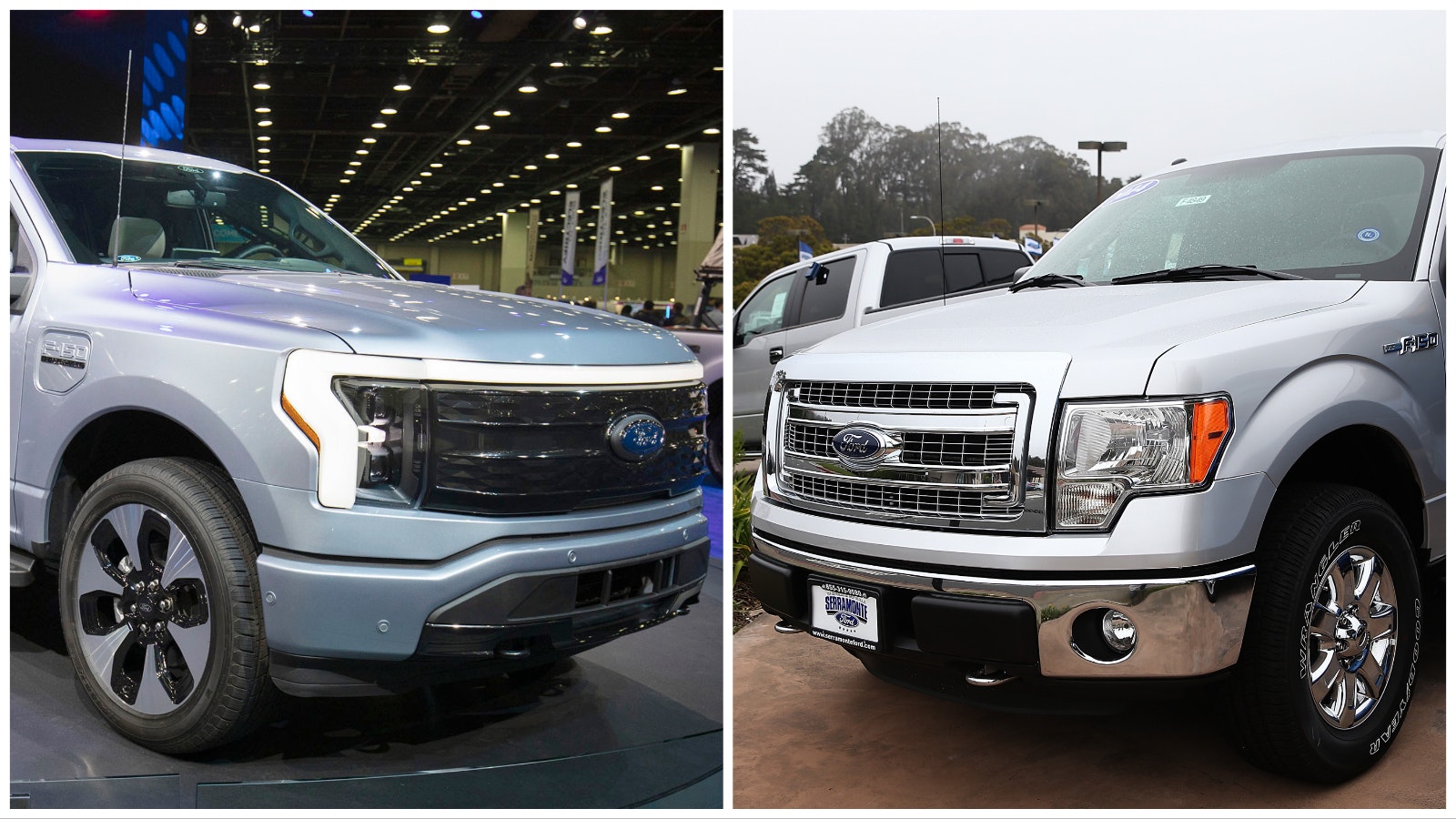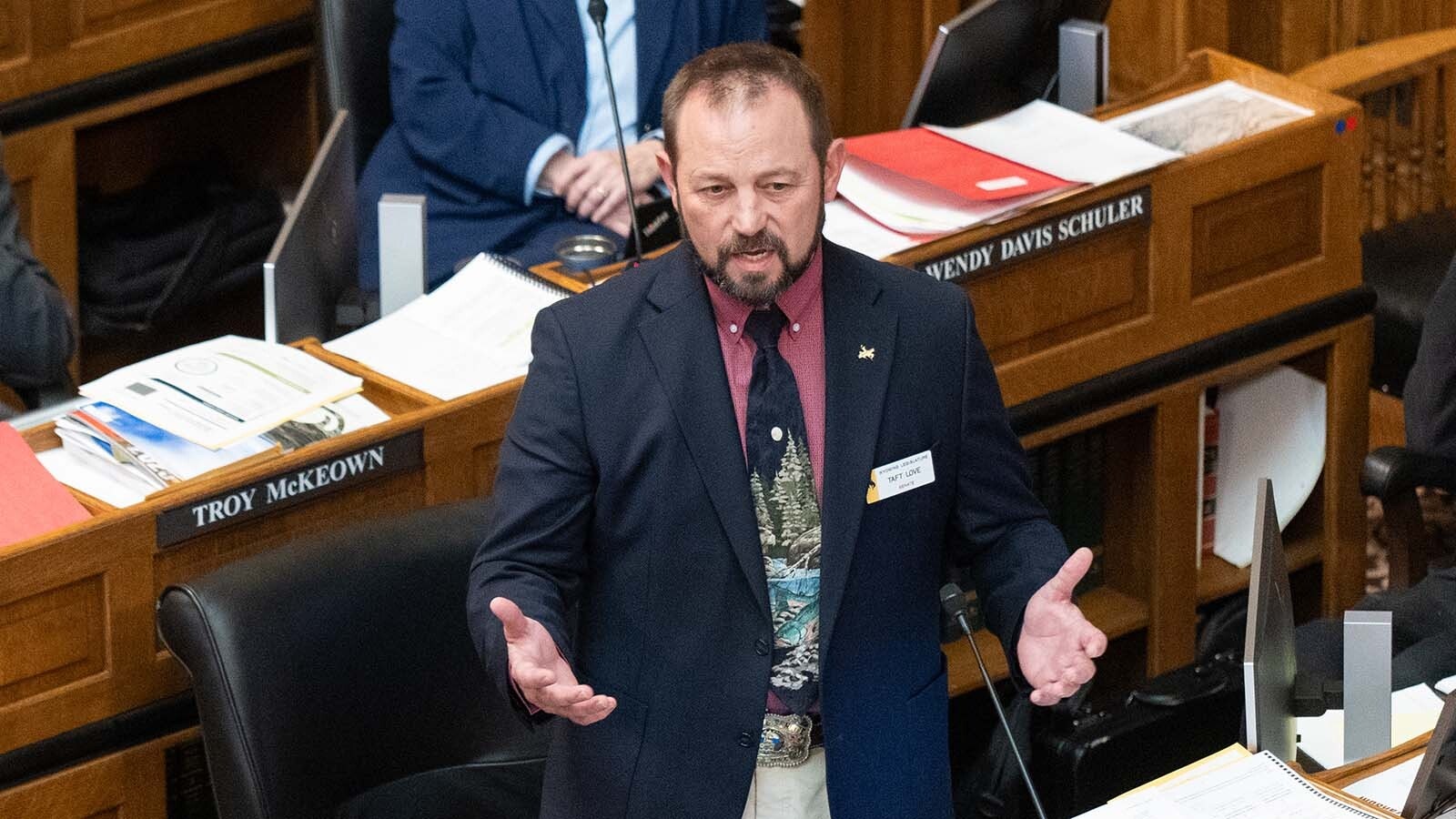A writer for MotorTrend, William Walker, decided to take his electric pickup to a DC fast-charging station at a 7-11 in California. It took over an hour and cost $51.70 to charge the Ford F-150 Lightning from 13% charge to 80%.
A gas-powered Ford F-150 has a 23-gallon tank. At California’s current gas prices, it would have taken Walker 5 minutes and about $77 for a comparable fillup.
However, with the tank 80% full, the gas-powered F-150 goes for about 460 miles, whereas the electric will travel 227miles on 80% charge.
That’s $0.227 per mile for the electric truck and $0.167 for the gas-powered F-150.
A Few Points
From the MotorTrend figures and Cowboy State Daily’s math, it might be easy to conclude that it’s more expensive to charge an EV pickup than it is to pay for gas, but there’s a few other considerations.
California has some of the highest rates of electricity in the country, and the truck was charged at a DC fast charger, which typically charges a large fee in addition to the cost of the electricity consumed.
Patrick Lawson, Riverton-based owner of Wild West EV, owns what is likely one of the few F-150 Lightnings in Wyoming. Lawson told Cowboy State Daily he charges the vehicle off his home solar panels, which makes it nearly free.
He estimates that running off Riverton power costs about $0.10 a kilowatt, so a full charge from empty costs about $13 for a 130 kilowatt hour battery.
At a public Electrify America station in Wyoming, Lawson said it charges about 48 cents per kilowatt. Typically, electric vehicles (EV) are only charged up to 80%, as the last 20% takes a very long time and there are no fumes to run on with an EV.
So, a typical charge would be around from about 20% to 80% and would cost about $40 at a Wyoming public charging station.
Lawson said the Wild West EV stations charge by the hour, but it’d be about the same cost.
Paying For Convenience
Aaron Turpen, a Cheyenne-based Cowboy State Daily automotive writer and supporter of electric vehicles, told Cowboy State Daily that most EV owners are going to charge at home where it’s a lot cheaper.
“At a DC fast-charging station, you pay for the convenience,” Turpen said.
Turpen reviewed the Ford F-150 Lightning for Cowboy State Daily and called the vehicle “the ultimate urban cowboy truck.”
Depending on the configuration, a Lightning can have up to 270 miles of range, but if you try to tow anything with it, that can drop down to 100 miles.
“It's made to drive around like a car, not a truck. When you use it for truck stuff, you start losing range and capability very quickly,” Turpen said.
Long Wait
Whether you’re in California or Wyoming, it can take about an hour to charge up from 20% to 80% because the battery in the truck is enormous. Depending on the configuration, it holds up to a 131 kilowatt hour battery. That’s enough to power the average American home for several hours.
Lawson said he runs power tools off his Lightning battery and could charge up a Tesla with it.
Most people driving gas-powered cars don’t use a full tank of gas every day, Turpen said, so most EV drivers aren’t draining a battery for everyday usage.
The average person drives 20 to 30 miles per day. A Lightning owner charging overnight at home would pay a few bucks per day in electricity and do the commute with a full charge.
Snacks While You Wait
Of course, if you try to go on a road trip with your Lightning, you’re going to have to plan for lengthy wait times at charging stations.
This is likely why companies like 7-11, Wal-Mart and Pilot and Flying J travel centers are planning to deploy charging stations at their locations across the country. People will have something to do while they fill up their cars, namely spend money at their stores.
Parked at the 7-11 for an hour, Walker ended up buying taquitos, Goldfish crackers, chips, water, Starbucks Double Shots, a Slurpee and a “sweet” 7-11 trucker hat. It was nearly $30 in “boredom retail.”





